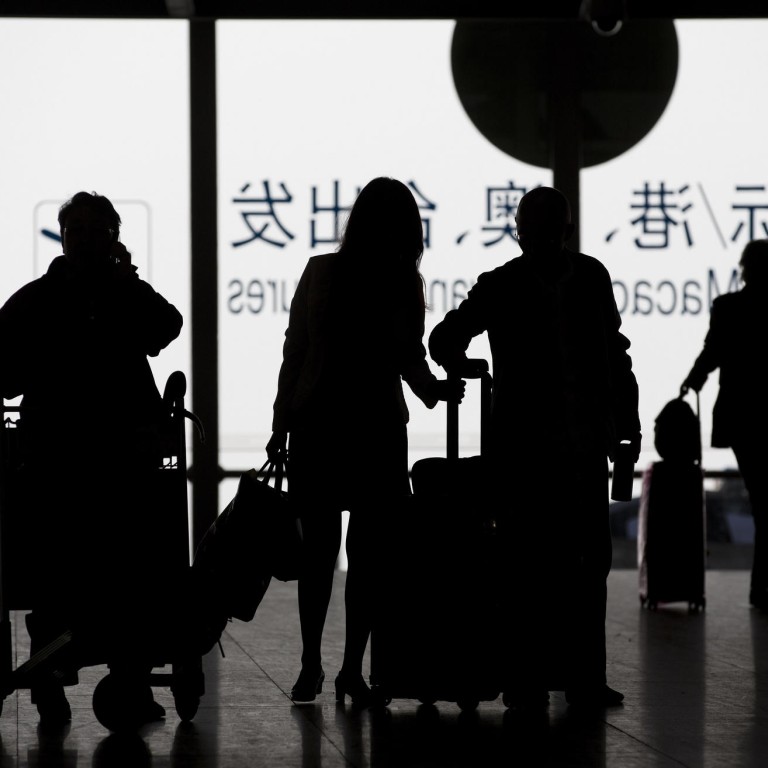
Travellers in Asia say how mystery of flight MH370 changed views on flying
A month after Malaysia Airlines flight MH370 disappeared, air travellers across Asia reveal how the mystery has affected their attitude to flying

"I never worried like this before what happened with the missing Malaysia Airlines plane," Yulveri, who uses only a single name, said at Jakarta's Soekarno-Hatta International Airport.
At the world's airports, Flight MH370 and its 239 passengers and crew - now lost for more than a month - are topics of avid speculation and sometimes anxiety. Passengers typically remain confident about air travel's safety, but some are distressed by the unprecedented disappearance.
"The mystery over the missing plane has created many confusing, even terrifying, theories every day," Yulveri said. "And the black box must be found whenever and however, or it will become a 'black hole' in the aviation world."
Before she and her air-force officer husband left for a tour of Japan's Hokkaido island, she talked to her 15-year-old daughter and asked her to care for her siblings. "What are you talking about?" her daughter said. "You'll come home. We all will be fine."

"I'm not afraid at all," he said. "Flying is generally really safe and accidents are very rare. What's the point of being afraid? We're living a good life, our children are grown up and it's time for us to enjoy life. I'm going off to Hawaii and San Francisco and when I get back let's go get a drink."
The website-television multimedia producer was heading from Beijing to Hong Kong to accompany a friend on a shopping trip.
"I'm really scared," he said. "I've always been a nervous flier and this only makes things worse. We have to find out what happened to the plane. We need to know what the risks are. Otherwise, it feels like anything can go wrong, and we just don't know."

"Flying is still probably the safest means of transport," he said. "And until we find the plane and find out what happened, I think that stays the case."
"It's scarier than it was," she said. "I'm a little more cautious - a little more worried, I'd say."

"It makes me a little nervous," he said. "It's amazing to think that people have disappeared, just like that. Science has developed so much, yet we can't do a basic search of a jet. As time goes by, it will be like trying to find a needle in a river."

"No fear," he said. "You take a risk when you take the plane all the time, anyway. It doesn't matter if you're flying now or tomorrow. It is what it is."

"I can tell you that I slept very well on board," he said. "It did not affect me: I was not worried. As long as we don't know what happened to the plane, we should be supportive of Malaysia Airlines. It is going through a tough time."

"I am so very afraid that something will happen to my plane like MH370, but I just have to believe in Allah and pray that I will be safe," she said.
"I have no choice because I miss my family."
She was at the airport in Kuala Lumpur where she was seeing off her friend, Wajihah, who was about to board a passenger jet.
"I have decided not to take any flight for the next two years," she said. "How can a plane just disappear like that?"

"I'm still fine with flying," she said. "But when it first happened, you think, 'Oh my goodness'. But you do it that regularly it doesn't bother you. I think that whoever took that plane, obviously it must have something to do with terrorism, and just hope there are no terrorists on our plane."
"I don't feel any differently," she said. "I fly quite often, probably every eight to 10 weeks. But I still have quite a few butterflies. But you just bear it ... You can't let these things interfere with your life. What do they say about life? You just keep going with it."

"That was a one-off thing and things like that don't happen very often," she said. "But it makes me want to communicate more with my family. You become more cautious; you make sure that you say your goodbyes properly."
'NO CALLS MADE'
Malaysia has rejected claims that phone calls were made from missing flight MH370 before it vanished, but refused to rule out the possibility in ongoing investigations.
The New Straits Times, quoting an anonymous source, reported on Saturday that co-pilot Fariq Abdul Hamid made a call which ended abruptly, possibly "because the aircraft was fast moving away from the [telecommunications] tower".
There had also been unconfirmed reports of calls by the Malaysia Airlines plane's captain, Zaharie Ahmad Shah, before or during the flight.
Malaysia's acting transport minister, Hishammuddin Hussein, said authorities had no knowledge of any calls made from the jet's cockpit.
However, he added that he did not want to speculate on "the realm of the police and other international agencies" investigating the case.
"I do not want to disrupt the investigations that are being done now not only by the Malaysian police but the FBI, MI6, Chinese intelligence and other intelligence agencies."
Hishammuddin also said no passenger on the plane had been cleared in the criminal investigation into the flight.
Fariq and Zaharie have come under intense scrutiny since the plane vanished with 239 people on board on March 8.
Agence France-Presse


